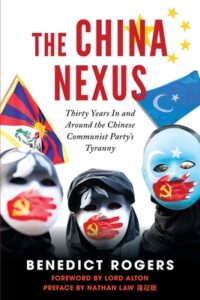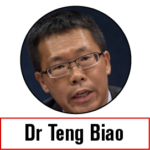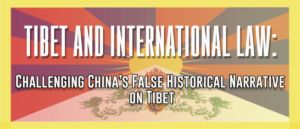 President Xi Jinping used the occasion of his meeting with US President Joe Biden to deny that the “democracy versus authoritarianism” narrative is the defining feature of today’s world, claiming that China enjoys “Chinese-style democracy.”
President Xi Jinping used the occasion of his meeting with US President Joe Biden to deny that the “democracy versus authoritarianism” narrative is the defining feature of today’s world, claiming that China enjoys “Chinese-style democracy.”
Xi rejected Biden’s narrative of a global competition between democracy and autocracy, the Post reports. “The United States has American-style democracy, and China has Chinese-style democracy,” Xi purportedly said, and those differences should be “recognized and respected.”
The precise nature of its democracy with Chinese characteristics” was evident at the recent 20th Party Congress when the CCP further consolidated Xi’s power as he secured an unprecedented third term as president by surrounding himself with loyalists, DW reports.
“This is the biggest change to China’s social and political structure since Xi came to power,” said Teng Biao, a Chinese legal scholar based in the United States. “While the CCP has been in control of China since 1949, the momentum of reform since the early 1990s has been stifled by Xi.”

Credit: RFA
“Many Western countries were expecting China to gradually realize democracy and an open society through market-oriented reforms and integration into the international economic system, but this expectation didn’t materialize,” he added. “This result pushed Western countries to pivot away from the engagement policy, and the changing international environment has also profoundly impacted China’s political development and economy,” said Teng, a 2008 National Endowment for Democracy Award recipient.
Striving for economic security will also lead China to rely on state-owned entities at the expense of the private sector, argues Claremont McKenna Professor Minxin Pei. From the party’s perspective, the state sector is more trustworthy than private companies in implementing its agenda. But these economic dinosaurs have a track record of failure, not success: A policy favoring them will only waste resources, he writes for Bloomberg.
The new leadership team selected by Xi at the 20th National Congress of the Communist Party of China failed to impress financial markets at home and abroad, adds Pei, a NED board member. In the week following the announcement of Xi’s new team, Hong Kong’s stock market declined by 8.3% and the Shanghai Composite Index, China’s largest stock exchange, dropped by 4% despite the Chinese government’s intervention to prop up prices. US-listed Chinese stocks plunged by 15%.
 China is a “more dangerous and insidious threat” to the West than Russia because it is more embedded in its institutions, according to the author of China Nexus. “We need to wake up to this,” says Benedict Rogers, founder of Hong Kong Watch.
China is a “more dangerous and insidious threat” to the West than Russia because it is more embedded in its institutions, according to the author of China Nexus. “We need to wake up to this,” says Benedict Rogers, founder of Hong Kong Watch.
He recalls a time when “there was a sense that there was some space for civil society and religious practitioners.”
“Yes, there were red lines but under the current regime all this space has vanished along with many of its critics,” he adds. But the “turning point” came just before Xi came to power at the time of the Beijing Olympics.
“By the time of the 2010 revolutions around the world the Chinese regime saw what was going on in other countries and decided it did not want the same happening there,” he said.
An attack on Taiwan would be an attack on the international rules-based order, Rogers adds.
 “We all should do all we can to prevent an invasion. Taiwan matters because it is a vibrant democracy and one of the best examples in the region that champions human rights. It’s a vital partner and the major producer of PC chips. If this fell into the hands of the CCP that would be dangerous,” he notes.
“We all should do all we can to prevent an invasion. Taiwan matters because it is a vibrant democracy and one of the best examples in the region that champions human rights. It’s a vital partner and the major producer of PC chips. If this fell into the hands of the CCP that would be dangerous,” he notes.
Yet the new China Dissent Monitor from Freedom House (below) found that dissent in China was vibrant and geographically widespread between June & Sept 2022. There were 668 instances of dissent and 168 instances faced direct reprisal.
“Contrary to what the Chinese Communist Party wants the world to believe, individuals throughout China are standing up to Beijing’s machine of censorship and repression to make their voices heard,” said Michael J. Abramowitz, president of Freedom House.
 At the center of their divergence is how the two nations view each other’s motives – and how detrimental these goals are to their own interests, CNN reports.
At the center of their divergence is how the two nations view each other’s motives – and how detrimental these goals are to their own interests, CNN reports.
“The Chinese believe the US goal is to keep China down so we can contain it. And the US believes China’s goal is to make the world safer for authoritarian states, push the US out of Asia and weaken its alliance system,” said Scott Kennedy, senior adviser in Chinese business and economics at the Center for Strategic and International Studies (CSIS) in Washington.
Xi has used a series of anti-corruption campaigns, to target political opponents and consolidate his control over the Chinese Communist Party (CCP), DW reports.
“From the beginning, he used the selective anti-corruption campaigns to remove political opponents,” said Hsin-Hsien Wang, an expert on Chinese politics at the National Chengchi University (NCCU) in Taiwan.
 “Additionally, he also tried to institutionalize his concentration of power,” Wang told DW. “Unlike other authoritarian leaders, who achieve power concentration through oppression, Xi established new institutions to broaden the scope of his power. These moves help to further institutionalize his authority.”
“Additionally, he also tried to institutionalize his concentration of power,” Wang told DW. “Unlike other authoritarian leaders, who achieve power concentration through oppression, Xi established new institutions to broaden the scope of his power. These moves help to further institutionalize his authority.”
While the West purports to promote the universal values of the Enlightenment, China’s ostensibly Communist regime insists it has a comparable civilizational narrative rooted not in the principles of Marxism-Leninism but in the Confucian idea of ‘harmony’. In practice, however, Beijing’s ‘coercive diplomacy’ and projection of its ‘sharp power’ entails the “rigorous, ruthless advancement of China’s interests and values at the expense of those of the West.”
 On November 17, the European Strategy and Policy Analysis System hosts a discussion on “The future of global competition: the battle of narratives,” featuring:
On November 17, the European Strategy and Policy Analysis System hosts a discussion on “The future of global competition: the battle of narratives,” featuring:
-
Jakub Jakóbowski, Senior Fellow, China-EU Programme, Centre for Eastern Studies (OSW), Warsaw
-
Valeria Kovtun, Head & founder, Filter National Media Literacy Project, Ukraine
-
Emeka Umejei, Lecturer, Communication Studies, University of Ghana
-
Christopher Walker, Vice President for Studies and Analysis, National Endowment for Democracy, Washington DC
-
Laura W., Director for Governance, National Intelligence Council/Strategic Futures Group, United States
Moderator: Lutz Guellner, Head of the Strategic Communication Division, EEAS
Program and further details here.
🪧📣 Our NEW China Dissent Monitor is LIVE!@FH_China researchers found that dissent in China was vibrant and geographically widespread between June & Sept 2022.
🗣️ There were 668 instances of dissent.
👮 168 instances faced direct reprisal.Learn more: https://t.co/zjPLnY89cU
— Freedom House (@freedomhouse) November 14, 2022







